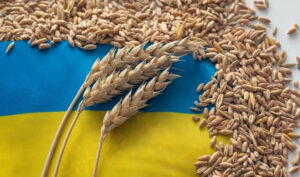
As of June 9, Ukraine had exported 38.777 million tons of grains and legumes since the beginning of the 2024-2025 marketing year (July-June), of which 475,000 tons were shipped this month, according to the press service of the Ministry of Agrarian Policy and Food, citing data from the State Customs Service. were shipped this month, according to the press service of the Ministry of Agrarian Policy and Food, citing data from the State Customs Service.
According to the report, as of June 12 last year, total shipments amounted to 48.381 million tons, including 1.449 million tons in June.
At the same time, in terms of crops, since the beginning of the current season, 15.015 million tons of wheat (152,000 tons in June), 2.305 million tons of barley (0), 10,800 tons of rye (0), corn – 20.89 million tons (320 thousand tons).
Total exports of Ukrainian flour since the beginning of the season as of June 9 are estimated at 66.1 thousand tons (in June – 1.2 thousand tons), including wheat flour – 61.7 thousand tons (1.1 thousand tons).
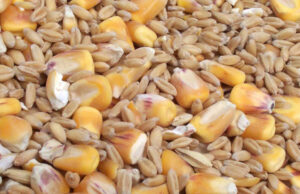
The US Department of Agriculture (USDA) has published its first forecast for grain exports from Ukraine for the 2025/26 marketing year (MY): it expects wheat exports to grow to 16.5 million tons from 16 million tons in 2024/25 MY and corn exports to grow to 24 million tons from 22 million tons.
According to the forecast on the US agency’s website, this year’s wheat harvest in Ukraine will decrease slightly to 23 million tons from 23.4 million tons last year, while domestic consumption will decline to 6.6 million tons in this MY from 6.7 million tons in the previous MY, with carryover stocks remaining at 1.49 million tons.
As for corn, the USDA expects its harvest to increase to 30.5 million tons from 26.8 million tons last year, as well as an increase in domestic consumption to 6.23 million tons from 5.15 million tons and carryover stocks from 0.31 million tons to 0.6 million tons.
According to the US Department of Agriculture, the total harvest of feed crops this year will amount to 37.04 million tons, compared to 33.47 million tons last year, and their exports in 2025/26 MY will reach 27.58 million tons, up from 24.48 million tons in 2024/25 MY.
Overall, the USDA expects wheat harvests to increase this year to 808.5 million tons from 799.7 million tons last year, and corn harvests to increase to 1,265.0 million tons from 1,221.3 million tons.
As for wheat exports, according to the US Department of Agriculture, in 2025/26 MY, they will increase to 212.99 million tons from 206.12 million tons this MY, and corn exports will increase to 195.81 million tons from 189.35 million tons.
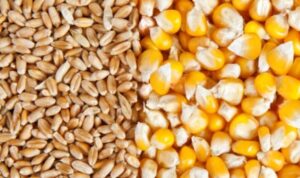
Ukraine has exported 35.093 mln tonnes of grains and pulses since the beginning of 2024-2025 marketing year (MY, July-June) as of April 30, of which 2.269 mln tonnes were shipped since the beginning of the month, the press service of the Ministry of Agrarian Policy and Food reported, citing the State Customs Service.
According to the report, as of April 29 last year, the total shipments amounted to 40.711 million tons.
At the same time, since the beginning of the current season, Ukraine has exported 13.873 mln tonnes of wheat (15.55 mln tonnes in 2023/24 MY), 2.264 mln tonnes of barley (2.181 mln tonnes), 10.8 thsd tonnes of rye (1.2 thsd tonnes) and 18.437 mln tonnes of corn (22.502 mln tonnes).
The total export of Ukrainian flour since the beginning of the season as of April 30 is estimated at 58.4 thsd tonnes (86 thsd tonnes in 2023/24 MY), including 54.2 thsd tonnes of wheat (81.3 thsd tonnes).
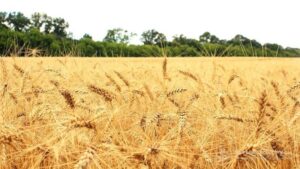
The U.S. Department of Agriculture (USDA) has released its April World Agricultural Supply and Demand Estimates (WASDE) report, which provides updated forecasts for wheat and corn production, consumption, trade, and stocks for the 2024/25 marketing year.
Wheat: global trends
– Production: downwardly revised by 0.3 mln tons to 796.9 mln tons, mainly due to lower production in Saudi Arabia and the EU.
– Consumption: decreased by 1.4 mln tons to 805.2 mln tons, due to reduced food, seed and industrial use in India and China.
– Trade: exports forecast reduced by 1.3 million tons to 206.8 million tons. Exports are expected to decline for Russia (-1.0 million tons to 44.0 million tons), Australia (-0.5 million tons to 25.5 million tons), and the EU (-0.5 million tons to 26.5 million tons), partially offset by increased exports from Canada (+0.5 million tons to 26.5 million tons) and Ukraine (+0.5 million tons to 16.0 million tons).
– Inventories: global ending stocks increased by 0.6 million tons to 260.7 million tons, down 3% year-on-year and the lowest level since 2015/16 MY.
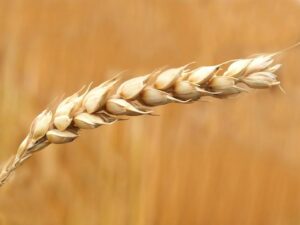
According to the forecast of the Food and Agriculture Organization of the United Nations (FAO), the global wheat production in 2025 will amount to 795 mln tonnes, which is the same as in 2024. The organization recorded mixed trends among the largest producing countries.
In the EU, production is expected to increase to 135.5 million tons (+12% yoy) due to the expansion of crops and improved weather conditions. At the same time, the FAO points to the lack of precipitation in the eastern part of the bloc, which may affect the final yield.
In Russia, wheat production is expected to decline due to low soil moisture and reduced acreage. A similar situation is observed in the US, where drought has affected winter wheat crops, which will lead to a decrease in the overall harvest.
According to FAO, wheat production in Ukraine will be below the five-year average. The main reasons are the ongoing armed conflict and dry weather conditions.
In Canada, wheat acreage is expected to increase due to price incentives, but this will be balanced by lower yields. Production will remain at the level of 2024, but will exceed the five-year average.
FAO predicts that India’s harvest will reach a record level of 115.4 million tons. The growth is due to the expansion of acreage, government subsidies and high market prices.
In the Middle East and North Africa, the harvest is expected to decline amid a lack of precipitation. In Argentina, production is expected to increase due to the expansion of crops. In Australia, a moderate decline in harvest volume is forecast, but the figure will remain above 30 million tons.
According to the FAO, the global grain production in 2024 amounted to 2.849 billion tons, which is 0.3% lower year-on-year. The forecast of grain consumption in 2024/25 marketing year is 2.868 billion tons, including 1.534 billion tons of feed grains (+1.1% yoy) and 795.4 million tons of wheat, which is slightly lower than the previous season.
According to national sources, Serbia plans to keep the wheat harvest within 3 mln tons. It is expected that weather conditions will allow to achieve above-average results. The country will continue to export to Italy, Turkey and other countries in the region.
Earlier, the information and analytical center Experts Club released the analysis of the main wheat producers by countries for the period of 1991-2023 – https://youtube.com/shorts/NMwidrCI6iY?si=hE3BXbdvWOG30Nld
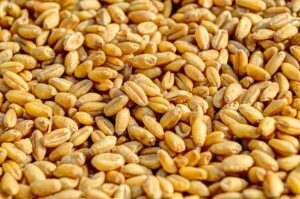
In March, Ukraine exported 1.1 million tons of wheat, which is one of the highest monthly figures of the current season, in April, the volume of supplies may be slightly lower, but still remain at a high level, according to the analytical cooperative “Start”, created within the framework of the All-Ukrainian Agrarian Council.
“For April, 850 thousand tons of wheat have already been contracted, and the total monthly exports may reach 1 million tons. Despite the general stagnation of demand in the European market, Ukrainian grain is finding its buyers, particularly in Egypt,” analysts said.
However, according to experts, the situation is less optimistic from the price point of view. The main export destinations for Ukrainian wheat – Italy, Spain, and the Netherlands – remain passive in terms of new purchases, and the reintroduction of duties on Ukrainian grain to the EU in June may further complicate access to the European market.
“There is no positive news for the wheat price so far. The stock market has been sinking in recent weeks, and we see a serious gap between the physical market and stock exchange quotes. While the FOB price in Ukraine is currently $60 per ton higher than in Chicago, by June-July the markets usually synchronize. This means that the Ukrainian physical price may sink, especially as the new harvest approaches,” Pusk commented.
According to analysts, the conditional average price for wheat of the 2nd class of the new harvest for July is forecasted at $190-200 per ton on a CPT-port basis, while currently this figure is fixed at $210-215. The potential decline could be up to $20 per ton.
“If you have the opportunity, you should not rush to sell. Historically, in July-August, the market is saturated with wheat from all major exporting countries – Ukraine, Russia, Romania, and the US – and even with a deficit balance, the price usually falls. At the same time, the seasonal model shows that from October to December, the price may rise to $220-235 per ton on a CPT-port basis. Therefore, if the financial cushion allows, it is worth considering postponing sales,” the analysts added.
They stated that flour mills are currently offering the best prices on the domestic market – 10500-11000 UAH/ton for 2-3 grade wheat.
“Given the sluggish export demand, this may be a more profitable solution for farmers,” Pusk believes.